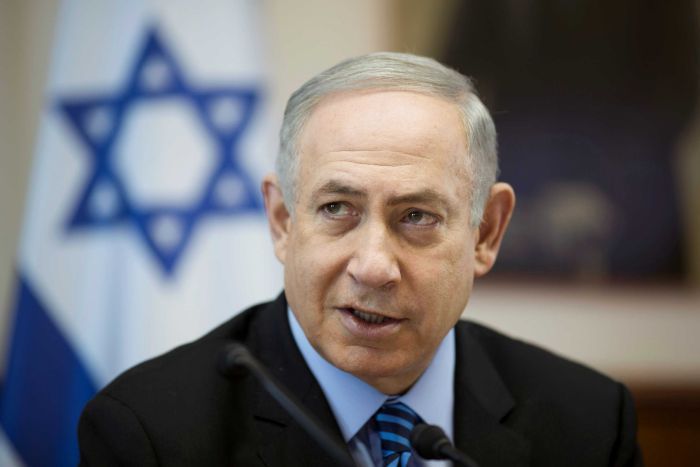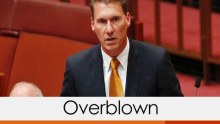Why the UN vote is a big deal for US and Israeli relations
Updated
Last Friday, the United Nations Security Council voted to condemn Israel over new settlements in Palestinian territory.
So why is this creating a diplomatic storm between the US and Israel?
Here's a look at why the issue is dominating news headlines.
How did this all begin?
Without going too far back into the Arab-Israeli dispute, about 570,000 Israelis live in settlements built since Israel occupied the West Bank and East Jerusalem in 1967. The land is also home to some 2.6 million Palestinians.
The Israeli settlements are considered illegal under international law, which is something Israel denies.
The UN says Israeli settlements have expanded in recent years.
So what did the Security Council do?
The US is a permanent member of the United Nations Security Council.
The Council is made up of 15 members, including five permanent members which have the power to veto resolutions.
The other permanent members are France, China, Russia and the UK.
On December 23 the UN's Security Council adopted a resolution that the establishment of Israeli settlements in Palestinian territory occupied since 1967 have "no legal validity," constitute a "flagrant violation" under international law and are a "major obstacle" to a two-state solution.
It was adopted with 14 votes in favour, to a round of applause.
The US abstained from the vote on Israel, essentially allowing it to go through.
Why is this important?
It's the first resolution the Security Council has adopted on Israel and Palestinians in almost eight years.
The US also has a strong history of protecting Israel from resolutions that are critical of it, even if it agrees with the sentiment.
It's been described as a parting shot from US President Barack Obama, who hasn't always had the most cordial relationship with Israeli Prime Minister Benjamin Netanyahu.
How was it received by the UN?
The move was welcomed by UN Secretary-General Ban Ki-moon.
"The resolution is a significant step, demonstrating the Council's much needed leadership and the international community's collective efforts to reconfirm that the vision of two states is still achievable," he said in a statement.
How did Israel take the news?
 Photo:
Benjamin Netanyahu has instructed his foreign ministry to re-evaluate its contacts with the UN. (Reuters: Abir Sultan, file)
Photo:
Benjamin Netanyahu has instructed his foreign ministry to re-evaluate its contacts with the UN. (Reuters: Abir Sultan, file)
Not well.
Mr Netanyahu labelled the resolution as "absurd" and said Israel looked forward to working with US President-elect Donald Trump to counter any effects it might have.
"The Obama administration not only failed to protect Israel against this gang-up at the UN, it colluded with it behind the scenes," he said.
Mr Netanyahu has instructed his foreign ministry to re-evaluate its contacts with the United Nations and stop its funding to five UN institutions, although he did not name which.
He also went on to take diplomatic action against co-sponsors of the resolution, ordering Israel's ambassadors to New Zealand and Senegal to return home.
He also instructed his Foreign Ministry to end all aid programs for Senegal and cancelled a planned visit to Israel by Senegal's foreign minister.
So does this relate to what Secretary of State John Kerry said today?
Yes.
In a 70-minute speech, Mr Kerry said Israel "will never have true peace" with the Arab world if it does not reach an accord based on Israelis and Palestinians living in their own states.
"Despite our best efforts over the years, the two-state solution is now in serious jeopardy," Mr Kerry said at the State Department.
"We cannot, in good conscience, do nothing, and say nothing, when we see the hope of peace slipping away.
"If the choice is one state, Israel can either be Jewish or democratic, it cannot be both, and it won't ever really be at peace."
What will happen when Donald Trump becomes president?
Mr Trump took to Twitter to assure Israel that things would change once he enters the Oval Office.
What now?
Mr Trump will be inaugurated on January 20.
Any future resolutions in the Security Council after that date would be under the guidance of the President-elect.
Topics: government-and-politics, foreign-affairs, territorial-disputes, world-politics, united-states, palestinian-territory-occupied, israel
First posted









